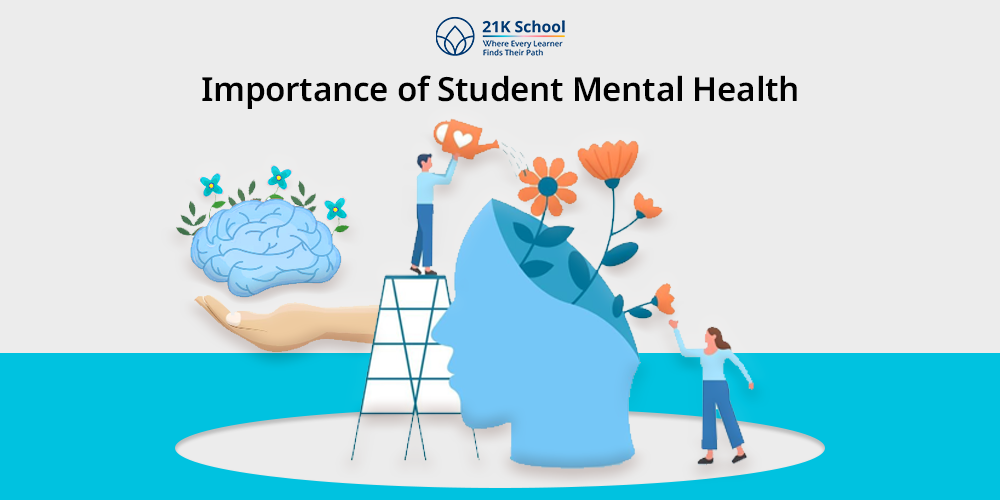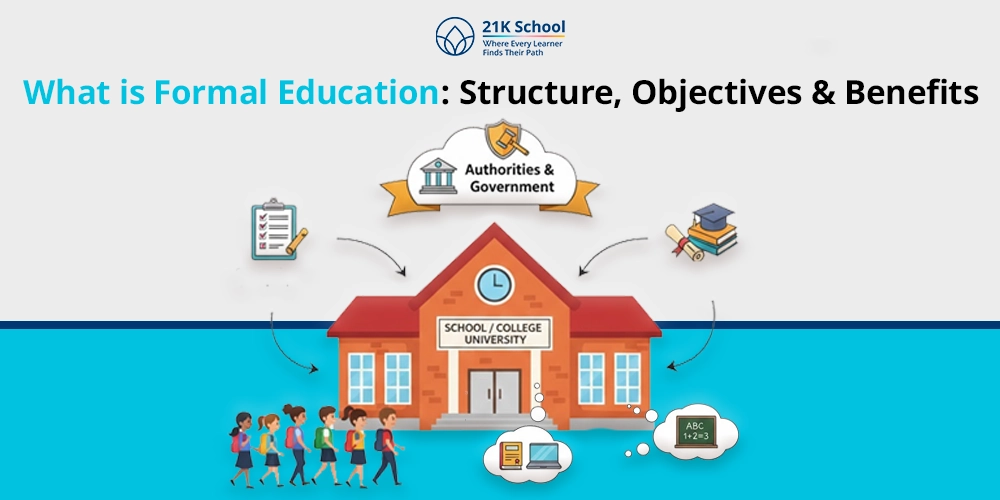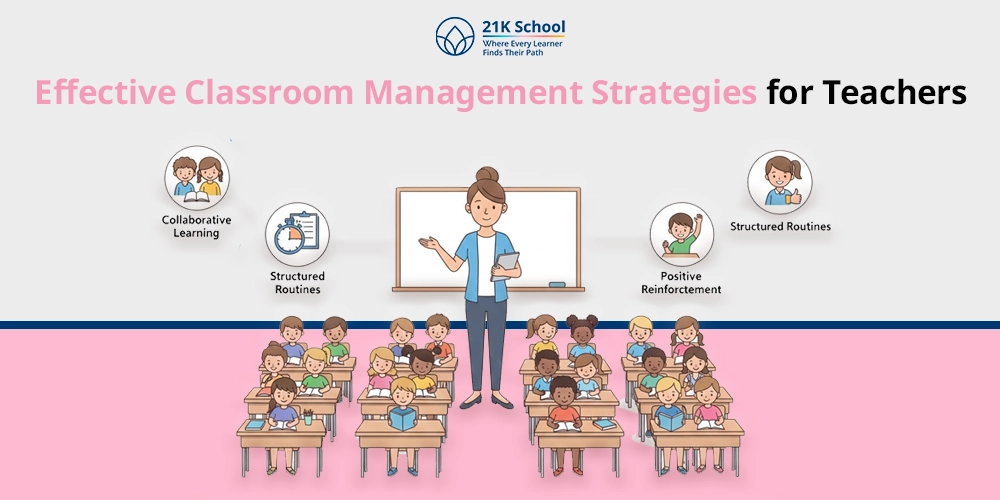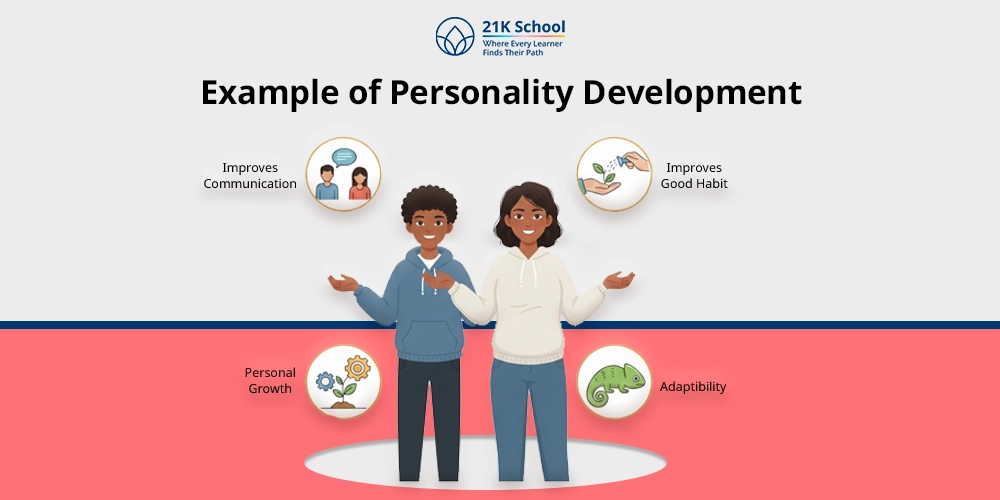
In today’s fast-paced world, students are under more pressure than ever before. From academic expectations to social demands, the emotional well-being of students often takes a backseat.
But mental health plays a critical role in how children learn, interact, and develop as individuals. When mental health is neglected, it can affect a student’s performance, confidence, relationships, and overall happiness.
A healthy mind enables better focus, emotional stability, and personal growth. That’s why schools, families, and communities must work together to support and prioritise student mental health.
Contents
- What is Student Mental Health?
- 11 Importance of Mental Health for Students
- 1. Improved Academic Performance
- 2. Increased Self-Assurance
- 3. Deeper Connections
- 4. Realistic Goal Setting
- 5. Reduced Behaviour Problems
- 6. Better Decision-Making
- 7. Better Sleep
- 8. Emotional Awareness and Regulation
- 9. Enhanced Creativity and Problem-Solving
- 10. Successful Transition to Adulthood
- 11. Overall Life Satisfaction
- Common Mental Health Issues Faced by Students
- Signs and Symptoms of Mental Health Struggles in Students
- Strategies to Promote Positive Mental Health in Students
- 1. Incorporate Daily Mindfulness or Meditation Activities
- 2. Encourage Open Conversations About Emotions
- 3. Provide Access to Trained School Counsellors
- 4. Introduce Mental Health Education in the Curriculum
- 5. Create a Safe, Non-Judgmental School Environment
- 6. Balance Academic Workload With Downtime
- 7. Engage Parents in Mental Wellness Initiatives
- Breaking the Stigma Around Mental Health in Education
- Conclusion: Building a Mentally Resilient Generation
What is Student Mental Health?
Student mental health refers to the emotional, psychological, and social aspects of a student’s well-being. It includes how they handle stress, relate to others, and make decisions, both inside and outside the classroom.
Mental health is not just the absence of mental illness. It also involves feeling emotionally balanced, motivated, confident, and connected.
A mentally healthy student is more likely to succeed academically and socially because they can cope with challenges, build strong relationships, and stay focused on their goals.
Read on to learn more about mental health activities for kids, to support and enhance child’s growth.
11 Importance of Mental Health for Students

A healthy and happy mind contributes to well-being and success both inside and outside the classroom. Here are the positive impacts of good mental health on a student’s life:
1. Improved Academic Performance

Good mental health improves focus, memory, and concentration. Students will be able to absorb and retain more during learning and perform better in assessments and class work.
2. Increased Self-Assurance

A healthy mind allows students to be more confident in themselves and their abilities. They are readily willing to get involved in learning, actively seek out challenges, and learn from their mistakes.
3. Deeper Connections

Emotional well-being allows students to foster healthy, strong and positive friendships and interactions. They can communicate assertively, exhibit empathy , and are less likely to run into conflicts with other peers or teachers.
4. Realistic Goal Setting

A calm, focused mind allows students to see and achieve realistic goals while putting in consistent effort and discipline.
5. Reduced Behaviour Problems

Students with good mental health will have less frustration, aggression, and impulsive behaviours, and will be more likely to follow school routines with regular attendance and positive, responsible behaviour.
6. Better Decision-Making

Having balance in their lives allows students to think clearly and therefore make better decisions in areas such as school, friendships, and their personal lives.
7. Better Sleep

Good mental health can lead to better sleep. If students feel good mentally, they will go to bed and wake up feeling refreshed. This leads to improved energy, focus, and mood in schools.
8. Emotional Awareness and Regulation

Students learn to understand that they are feeling a certain way, identify their emotions, and find ways to regulate them and not act out. This leads to minimising mood swings as well as emotional maturity.
9. Enhanced Creativity and Problem-Solving

When a student has a sense of calm, their mind is free to be creative. They can think outside the box, be open to new ideas and solve problems with much more conviction.
10. Successful Transition to Adulthood

Good mental health gives students the ability to learn the life skills necessary to become mature adults, such as responsibility, independence, and mental resilience.
11. Overall Life Satisfaction

When students are mentally in a good place, they feel happier and more fulfilled in all aspects of their lives. They have a more optimistic perspective on things, which ultimately improves their sense of being.
Common Mental Health Issues Faced by Students
Many students struggle with emotional issues that are often invisible. Understanding these challenges is the first step toward providing the right support:
1. Anxiety Disorders

This includes fear of failure, performance anxiety, or constant worrying. Students may stress about exams , speaking in class, or even attending school.
2. Depression

A student with depression may feel hopeless, tired all the time, and lose interest in friends, hobbies, or schoolwork. It often goes unnoticed but has a deep impact on learning and behaviour.
3. Attention Deficit Hyperactivity Disorder (ADHD)

ADHD affects attention, behaviour control, and the ability to stay organised. Students may struggle to follow instructions, stay seated, or complete assignments on time.
4. Eating Disorders

Issues like anorexia, bulimia, or binge eating often stem from body image pressure, low self-esteem, or emotional stress, especially among adolescents.
5. Bullying-Related Trauma

Whether in person or online, bullying can lead to fear, anxiety, and a drop in self-worth. Victims often feel isolated, which can result in long-term emotional damage.
6. Sleep Disorders

Stress, late-night screen time and irregular routines can lead to sleep disturbances. Lack of sleep affects memory, mood, and overall academic performance.
If you are wondering how many hours of sleep are enough for students, read here .
Signs and Symptoms of Mental Health Struggles in Students
Recognising the early signs of mental health problems in students is crucial. These signals often show up in subtle ways and may be mistaken for laziness or moodiness:
1. Sudden Drop in Academic Performance

Students who were once active and attentive may suddenly lose interest or struggle with basic tasks.
2. Withdrawal from Friends and Social Activities

Avoiding group activities, spending too much time alone, or showing no interest in friendships can indicate emotional stress.
3. Frequent Mood Swings or Irritability

Unusual anger, sadness, or sudden emotional reactions can be a sign of underlying mental health issues.
4. Changes in Sleep or Eating Patterns

Either sleeping too much or too little, skipping meals, or overeating can signal anxiety or depression.
5. Lack of Concentration and Motivation

Struggling to stay focused or feeling constantly tired and unmotivated can affect academic results and social interactions.
6. Unexplained Physical Ailments

Frequent headaches, stomachaches, or fatigue without any medical cause are often symptoms of emotional distress.
7. Talking About Feeling Hopeless or Worthless

Expressions of low self-esteem or hopelessness should never be ignored and need immediate attention.
Here is a comprehensive student stress guide to tackle the above issues.
Strategies to Promote Positive Mental Health in Students

Here are some simple but effective ways schools and families can build a strong foundation of mental wellness:
1. Incorporate Daily Mindfulness or Meditation Activities

Simple breathing exercises or quiet time can help students stay calm and centred.
Explore mindfulness activities for students .
2. Encourage Open Conversations About Emotions

Create a space where students feel safe to express how they feel, without fear of being misunderstood.
3. Provide Access to Trained School Counsellors

Having professionals available allows students to discuss their concerns privately and get appropriate help.
4. Introduce Mental Health Education in the Curriculum

Lessons on emotional intelligence, stress management , and self-awareness should be a part of regular learning.
5. Create a Safe, Non-Judgmental School Environment

Every student should feel respected and accepted for who they are, regardless of background or ability.
6. Balance Academic Workload With Downtime

Overloading students can cause burnout and study stress . Breaks and playtime are essential for brain and body recovery.
Learn about how students can cope with study stress .
7. Engage Parents in Mental Wellness Initiatives

Workshops and communication between school and home strengthen the support system for students.
Breaking the Stigma Around Mental Health in Education

Despite progress, stigma still surrounds mental health. Many students fear being labelled or misunderstood if they speak up about their struggles.
To change this, we must:
- Talk openly about mental health
- Highlight real stories of resilience
- Celebrate World Mental Health Day and similar initiatives
- Use kind, inclusive language
- Empower teachers to support students without judgment
Ending stigma begins with awareness and compassion. It allows students to feel seen, heard, and supported.
Conclusion: Building a Mentally Resilient Generation
The future of education depends on more than grades; it depends on healthy minds.
Supporting childrens mental health is not a luxury but a responsibility. It shapes confident learners, kind friends, and emotionally balanced individuals.
When schools, families, and communities work together to prioritise mental wellness, we pave the way for a stronger, happier generation.



